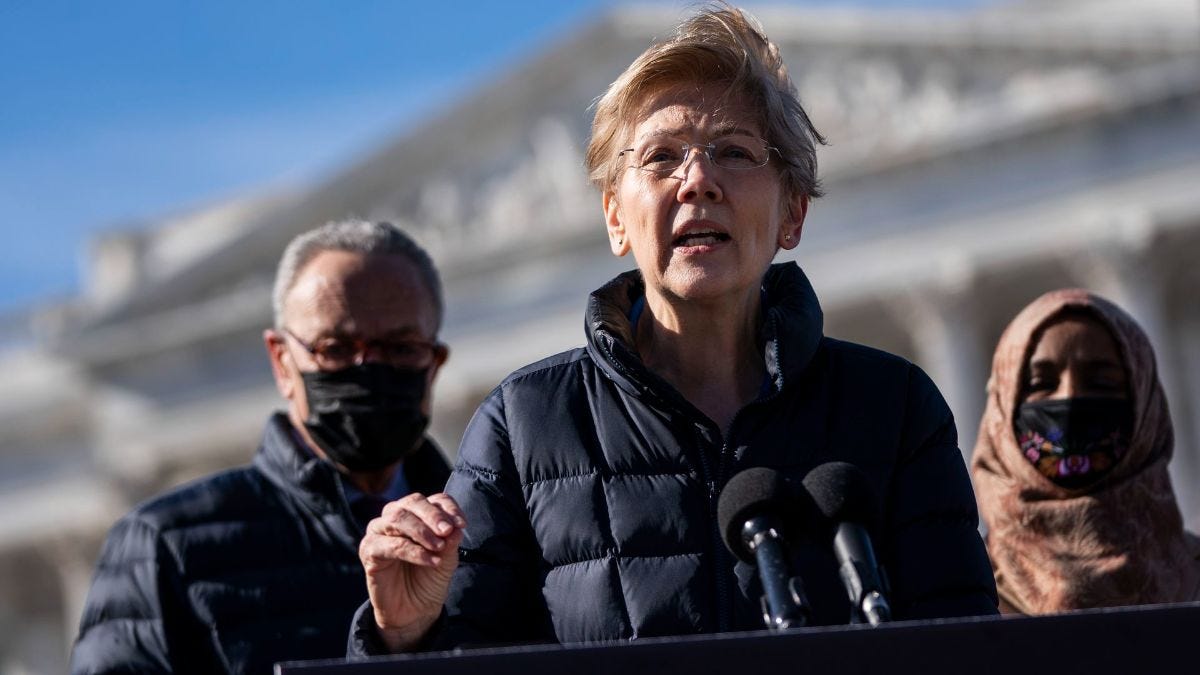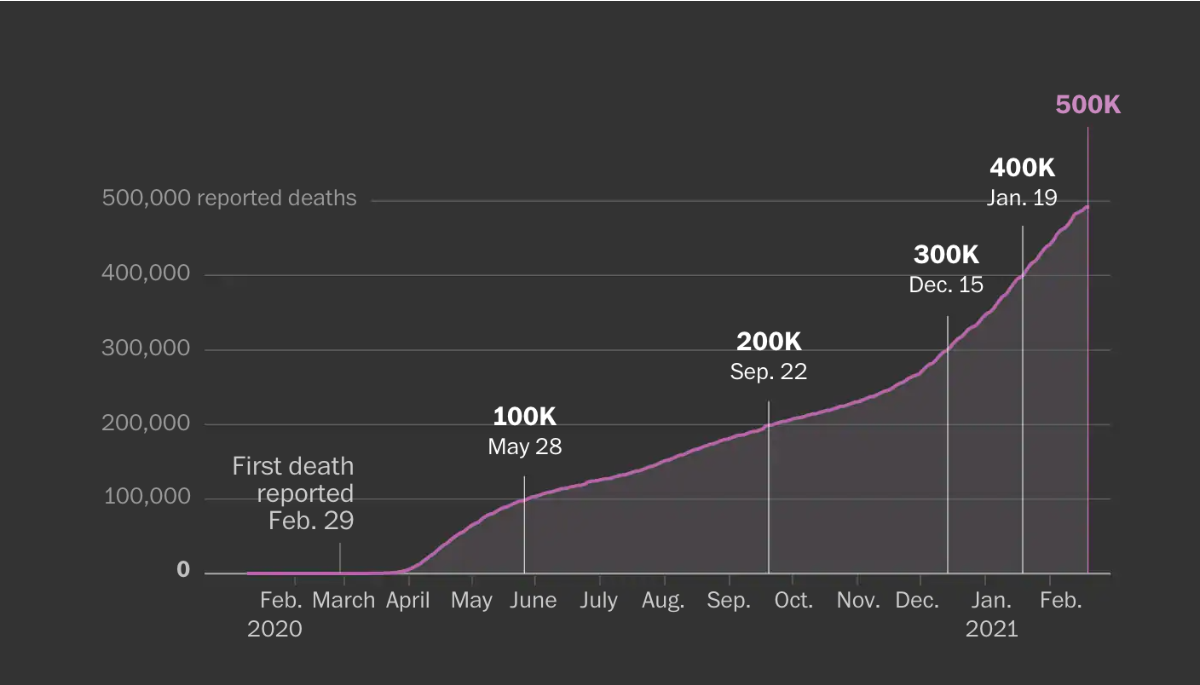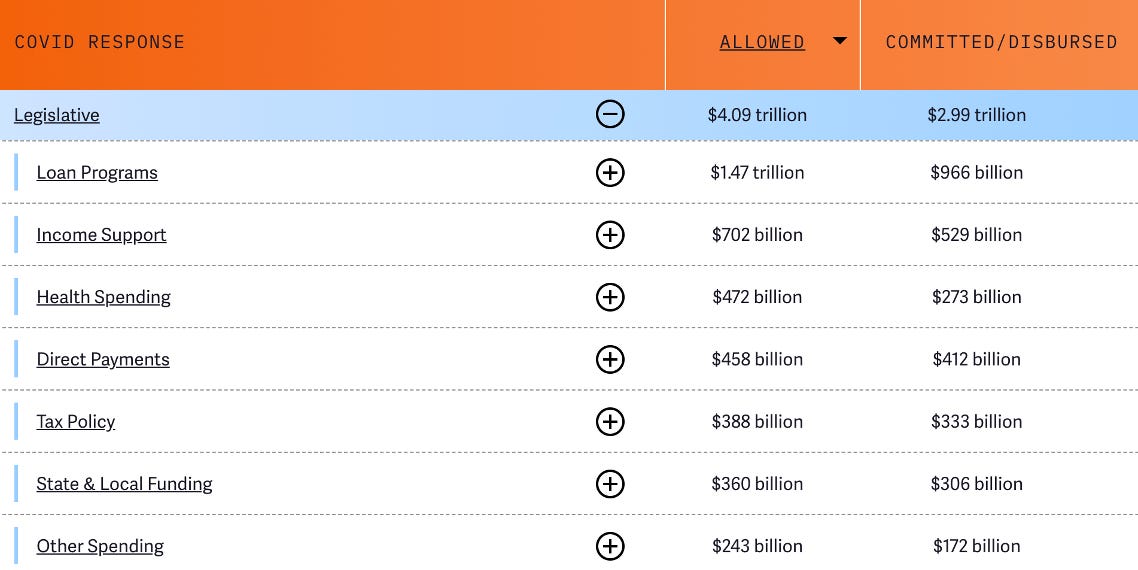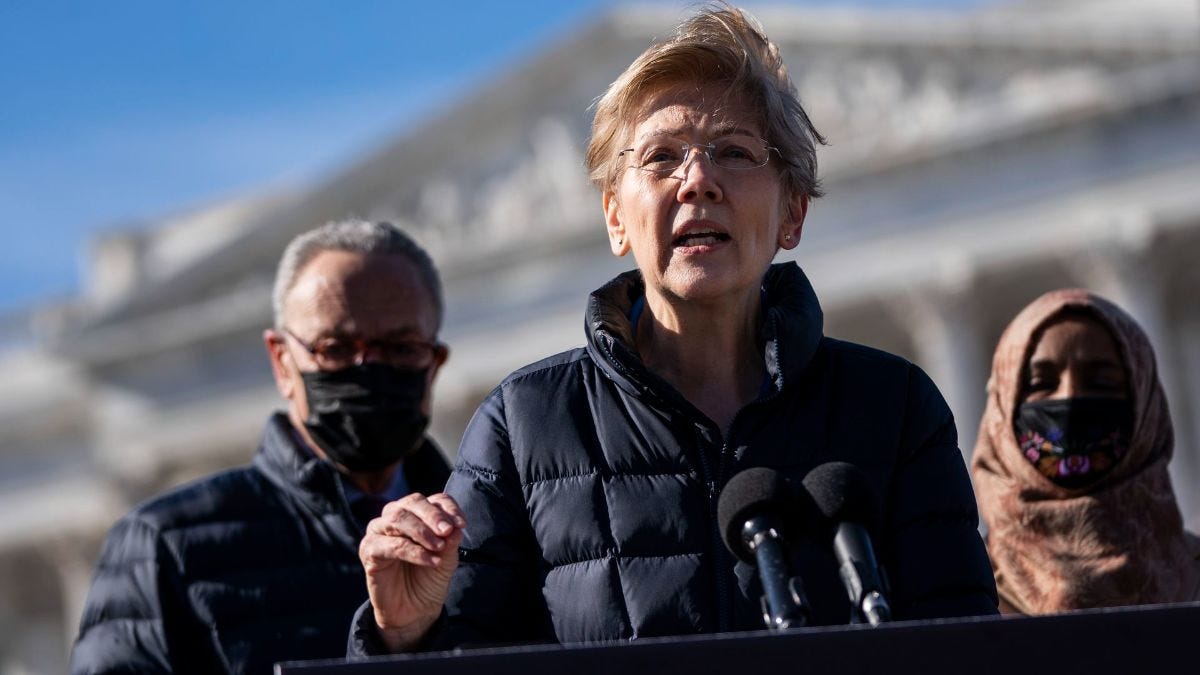Wake Up To Politics - February 22, 2021
Wake Up To Politics: Dems, GOP grapple with identity crises
Good morning! It’s Monday, February 22, 2021. Election Day 2022 is 624 days away. Election Day 2024 is 1,352 days away. Happy birthday to George Washington — according to the Gregorian Calendar, at least.
Are the political party tents splitting at their seams?
“In your view, do the Republican and Democratic parties do an adequate job of representing the American people, or do they do such a poor job that a third major party is needed?”
Gallup has been asking that question to Americans since 2003, testing how satisfied the nation is with the two major political parties. Last week, the firm released its latest results for the question, and the number of respondents who said a third party was needed hit an all-time high: 62%.
That doesn’t mean a competitive third party is necessarily on the horizon: there are significant obstacles standing in the way. But the poll does underline how dissatisfied so many Democrats and Republicans are with their own parties at the moment. After four years in which the two parties were mostly aligned either in support or opposition to Donald Trump, Democrats and Republicans now find themselves engaged in bitter fights over their party identities. Who wins those internal clashes will determine who wields power in the Biden era.
On the Democratic side, Joe Biden was mostly able to tamp down divisions within the party as he united progressives and moderates alike under his campaign’s “big tent.” According to Bloomberg, progressive leaders have been pleasantly surprised so far both by Biden’s policies and nominees. But, the New York Times reported this weekend, that ideological truce may be coming to an end, as liberal lawmakers and activist launch new efforts to push Biden leftward.
There are two issues to watch that are fueling the burgeoning split within the party: student loans and the minimum wage. The first broke out into the public eye last week, when a Wisconsin voter told Biden at a CNN town hall that “we need student loan forgiveness beyond the potential $10,000 your administration has proposed.”
“I will not make that happen,” Biden responded bluntly, shutting down progressive calls for him to cancel up to $50,000 in student debt per borrower by executive order. The response was immediate: “It’s time to act,” Sen. Elizabeth Warren (D-MA) said in a statement with Senate Majority Leader Chuck Schumer (D-NY), urging Biden to take the more aggressive stance. “We will keep fighting.”
The minimum wage fight is a smaller skirmish in the larger war over the $1.9 trillion stimulus package Biden has proposed. The legislation currently includes a minimum wage increase to $15 an hour by 2025, a considerable olive branch to progressives. But Biden appears to be backing away from the policy: according to Politico, he told a group of governors and mayors last week that the increase was unlikely to be part of the final package, due to the Senate rules governing the reconciliation process.
The Senate parliamentarian could decide as soon as this week whether or not the minimum wage hike can be included in the package. Sen. Bernie Sanders (I-VT) has launched a full-court press to persuade the parliamentarian to keep the increase in the package; some progressives have urged Democratic leaders to challenge the parliamentarian’s ruling and move forward with the wage hike either way. If the provision is stripped away from the bill, it will be a very public loss for Sanders and his allies.

The Republican identity crisis is even more overt and less focused on policy than personality. Namely, one personality: Donald Trump. The GOP’s leaders and voters are split over how much influence Trump should retain over the party after his bruising re-election loss (which he continues to deny).
Among the party’s boldface names, Senate Minority Leader Mitch McConnell (R-KY) and House Republican Conference Chairwoman Liz Cheney (R-WY) have emerged as Trump’s leading antagonists, with the former now engaged in an all-out feud with his onetime ally.
On the other side stands House Minority Leader Kevin McCarthy (R-CA) and House Minority Whip Steve Scalise (R-LA), who have both made the pilgrimage to Mar-a-Lago in recent weeks to huddle with the former president and court his support.
But while Republican leaders spar over the party’s future, Trump seems to have already won the fight among the rank-and-file. In fact, a Suffolk University/USA Today poll released on Sunday found that a plurality of Republicans — 47% — would abandon the GOP if Trump created a new party. Mitch McConnell might have abandoned Trump, but the ex-president’s grip on the Republican voter base is as firm as ever.
On the state and local level, Trump’s dominance is even more clear, as party organizations censure lawmakers who broke with Trump during the impeachment and GOP candidates compete for the “Trump lane” in 2022 primaries. (“The ‘Trump lane’ is the entire highway,” former Republican operative Tim Miller wrote in The Bulwark on Saturday.)
Trump will roar back into the limelight this weekend, with an address at the Conservative Political Action Conference (CPAC). Trump’s running mate turned punching bag, former Vice President Mike Pence, declined an invitation to speak at the annual confab, a telling sign of how he’d likely be received by the party grassroots after crossing Trump to certify Biden’s election victory last month.
The Rundown
More than 500,000 people have died from coronavirus in the United States. The U.S. reached the grim milestone Sunday, according to NBC News, almost exactly a year after the nation’s first COVID-19 death. The coronavirus death toll in America is about as large as the populations of Atlanta, Georgia, or Sacramento, California; it is greater than the combined U.S. death tolls from World War I, World War II, and the Vietnam War.
President Joe Biden declared a major disaster in Texas on Sunday as the state reels from a devastating winter storm. The declaration only extends federal assistance to 77 out of Texas’ 225 counties; Gov. Greg Abbott (R-TX) had requested that the declaration cover the entire state.
Sen. Joe Manchin announced (D-WV) on Friday that he would oppose Biden’s pick to lead the Office of Management and Budget. The nominee, Neera Tanden, has sparked controversy with her caustic tweets that targeted political leaders on the left and the right. Without Manchin’s support, her nomination is doomed unless a Republican senator decides to back her. Sen. Susan Collins (R-ME) announced this morning that she too would oppose Tanden.

Ask Gabe
Q: One of the objections to President Biden’s stimulus bill is that the previous allocation(s) haven’t been spent. How much hasn’t been spent and why not? — Amy Pearl of Sonoma County, California
A: According to the COVID Money Tracker maintained by the Committee for a Responsible Federal Budget (CRFB), a nonpartisan budgetary watchdog group, Congress has appropriated about $4.1 trillion in the coronavirus relief packages that have been passed so far. Of that, the group estimates that about $1.1 trillion – a quarter — has yet to be used. More than half of the unused funds come from the $900 billion package that was enacted in late December, about two months ago.
As Amy noted, several Republican lawmakers have cited this figure to call for the next package to be smaller than President Biden’s $1.9 trillion proposal. Biden has pushed back on those criticisms, repeatedly stating that “the biggest risk is not going too big...it’s if we go too small.”
According to the CRFB, much of the unused $1.1 trillion from previous packages has already been allocated or scheduled to be spent, it will just take time for the funds to be distributed and for all disbursements to be reflected in the data. The biggest chunk of the unspent funds is from loan programs, such as second-draw Paycheck Protection Program (PPP) loans that are still in the process of being issued.
The committee also noted that some of the money was designed to be disbursed over a longer period of time, such as Medicaid matching payments to states that will be paid out over the next several years, or money for the monthly unemployment checks to go out in future months. According to the group, “a small portion” of the funds may never be spent as economic circumstances shift over time; for example, the unemployment benefits could end up costing less than originally projected if unemployment drops across the country.

Daybook
White House
President Joe Biden will receive the President’s Daily Brief at 9:45 a.m. Then, at 12:05 p.m., he will make an announcement related to small businesses. At 6 p.m., he will deliver remarks on the lives lost to COVID-19. At 6:15 p.m., he will be joined by First Lady Jill Biden, Vice President Kamala Harris, and Second Gentleman Doug Emhoff for a moment of silence and candle lighting ceremony in honor of COVID-19 victims.
White House Press Secretary Jen Psaki will hold a press briefing at 12:30 p.m.
U.S. public health officials will hold a press briefing at 3 p.m. The briefers will include Dr. Anthony Fauci, the chief medical advisor to the president; Dr. Rochelle Walensky, the director of the Centers for Disease Control and Prevention; and Andy Slavitt, a White House senior advisor for COVID-19 response.
Congress
The Senate will convene at 3 p.m. Following the prayer and Pledge of Allegiance, Sen. Rob Portman (R-OH) will be recognized to read Washington’s Farewell Address, continuing an annual Senate tradition marking the late president’s birthday that stretches back to 1862.
After the reading, the Senate will proceed to Executive Session to consider the nomination of longtime career diplomat Linda Thomas-Greenfield to be U.S. Ambassador to the United Nations. A cloture vote to advance Thomas-Greenfield’s nomination will be held at 5:30 p.m.
The House will briefly convene at 11:30 a.m. for a pro forma session.
The Senate Judiciary Committee will hold the first day of its confirmation hearings for the nomination of D.C. Circuit Judge Merrick Garland to be Attorney General at 9:30 a.m. Garland will be introduced by Sens. Chris Van Hollen (D-MD) and Tammy Duckworth (D-IL).
The House Budget Committee will meet at 1 p.m. to mark up the American Rescue Plan Act of 2021, the $1.9 trillion coronavirus relief package. The panel will stitch together pieces of the plan submitted by nine House committees, a key step towards preparing the legislation for a final House vote later this week.
Supreme Court
The justices will release orders from their Friday conference at 9:30 a.m. Then, at 10 a.m., they will hear oral arguments in Florida v. Georgia.
Thanks for waking up to politics! If you enjoy reading this newsletter, I’d be so grateful if you’d consider donating to help support me and my work. If you want to show off your support for Wake Up To Politics, you can also buy some merchandise.
Also: don’t forget to tell your friends and family to sign up for the newsletter at wakeuptopolitics.com. And if you have any questions or comments, feel free to email me at any time.



